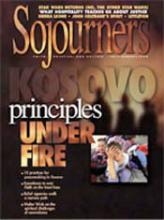For a lot of folks, Lucinda Williams came out of nowhere this past year. Suddenly there was this hyper-literate, middle-aged, female, rockabilly bohemian on network TV. Then, in early 1999, there was her album Car Wheels on a Gravel Road, which topped the Best of ‘98 lists.
Of course, nobody on the back side of 40 is an overnight success, and Williams put out her first important recorded work a good 11 years ago. But until recently you could have put her entire fan base into a single football stadium. Her one previous brush with the big time was back in 1993-94, when Mary Chapin Carpenter had a hit with Williams’ song "Passionate Kisses." Williams got a songwriter Grammy and a few bookings on TNN. But in 1994 she didn’t have a new product to push, or even a record deal.
The sad fact is that American culture today doesn’t know what to do with an artist who reads and writes. Pop music has trouble with a middle-aged rockabilly; country music with an untraditional woman. And our whole postmodern media universe is so damned hip and ironic that it can’t recognize a true, heart-on-the-sleeve bohemian when it sees one. No wonder Williams has had a tough row to hoe.
She finally broke through, in spite of all this, because she stands for, and upon, a set of feelings and traditions that are (paraphrasing one of her songs) too cool, and too real, to be forgotten. Her lyrics drop references to Hank Williams, Loretta Lynn, Robert Johnson, and Howling Wolf. But you don’t need the clues to hear those echoes. The rattle of a snare drum, the texture of a slide guitar, and that aching, high-lonesome catch in her voice say it all. Of course, the power of the hillbilly blues rests on the peculiar agony and ecstasy of Southern American history and tradition. That’s the wound from which almost all of America’s cultural lifeblood has run. And it is still wide open in this music.
Read the Full Article
